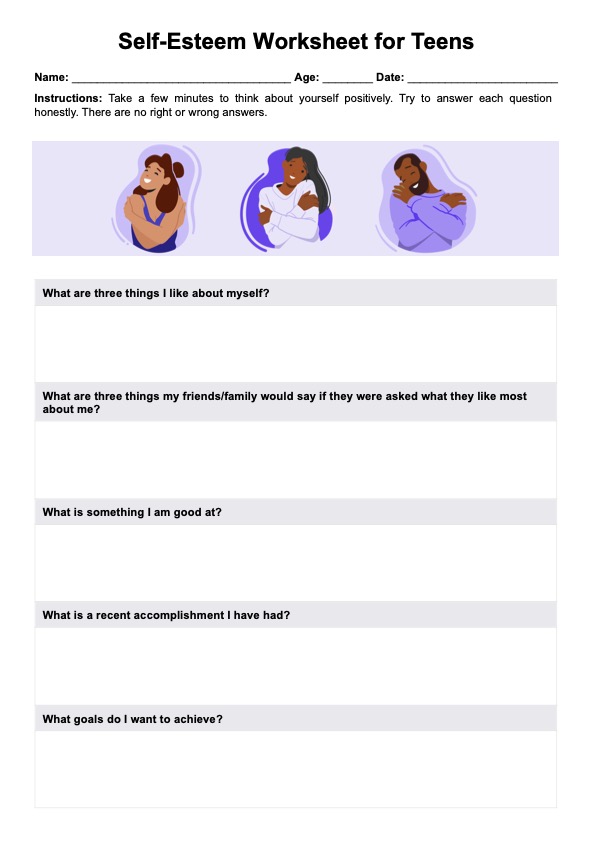Deciding to use this Self-Esteem Worksheet for Teens is entirely up to you. You may find yourself with a client being specifically treated for self-esteem reasons, or it may be a side effect of a different issue. Regardless of the reason, if you think your client could benefit from completing this worksheet, then no harm would come from distributing it.

Self Esteem Worksheets For Teens
Support your clients in building confidence and self-worth with our Self-Esteem Worksheet for Teens. Use it for therapy sessions or take-home activities.
Self Esteem Worksheets For Teens Template
Commonly asked questions
The Self-Esteem Worksheet for Teens has been designed for clients to complete. However, this can depend on the specific client's needs and general capabilities, and you may find it easier if you assist them in completing it. This is completely fine, provided the answers included on the worksheet have been mainly dictated by the client, as they should honestly reflect the client's experiences.
Because these therapy worksheets contain confidential information, they must be stored according to HIPAA guidelines. There are a couple of ways to do this. You can store them in a physical location with adequate security or use a HIPAA-compliant EHR system. While both options are fine, we recommend using an EHR platform, as these are often the most secure and have the advantage of being highly accessible.
EHR and practice management software
Get started for free
*No credit card required
Free
$0/usd
Unlimited clients
Telehealth
1GB of storage
Client portal text
Automated billing and online payments











